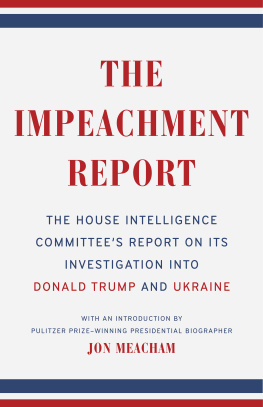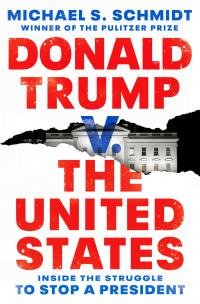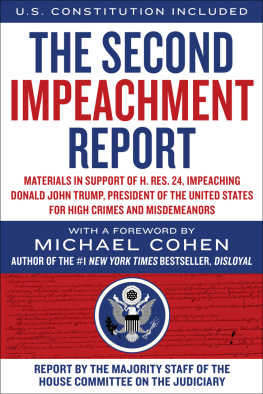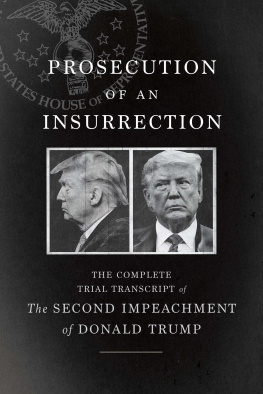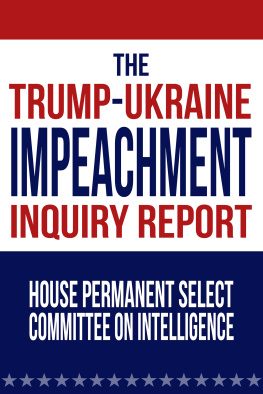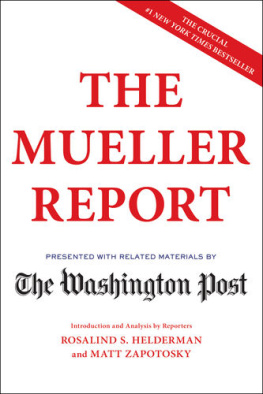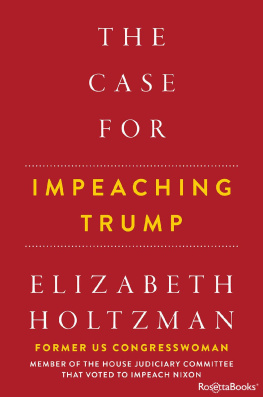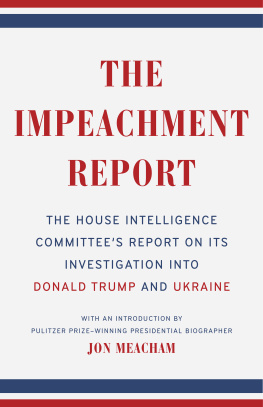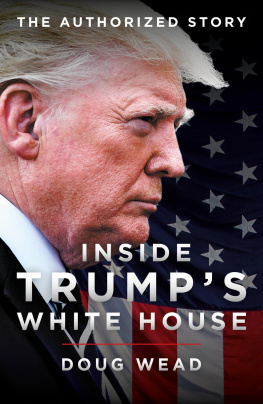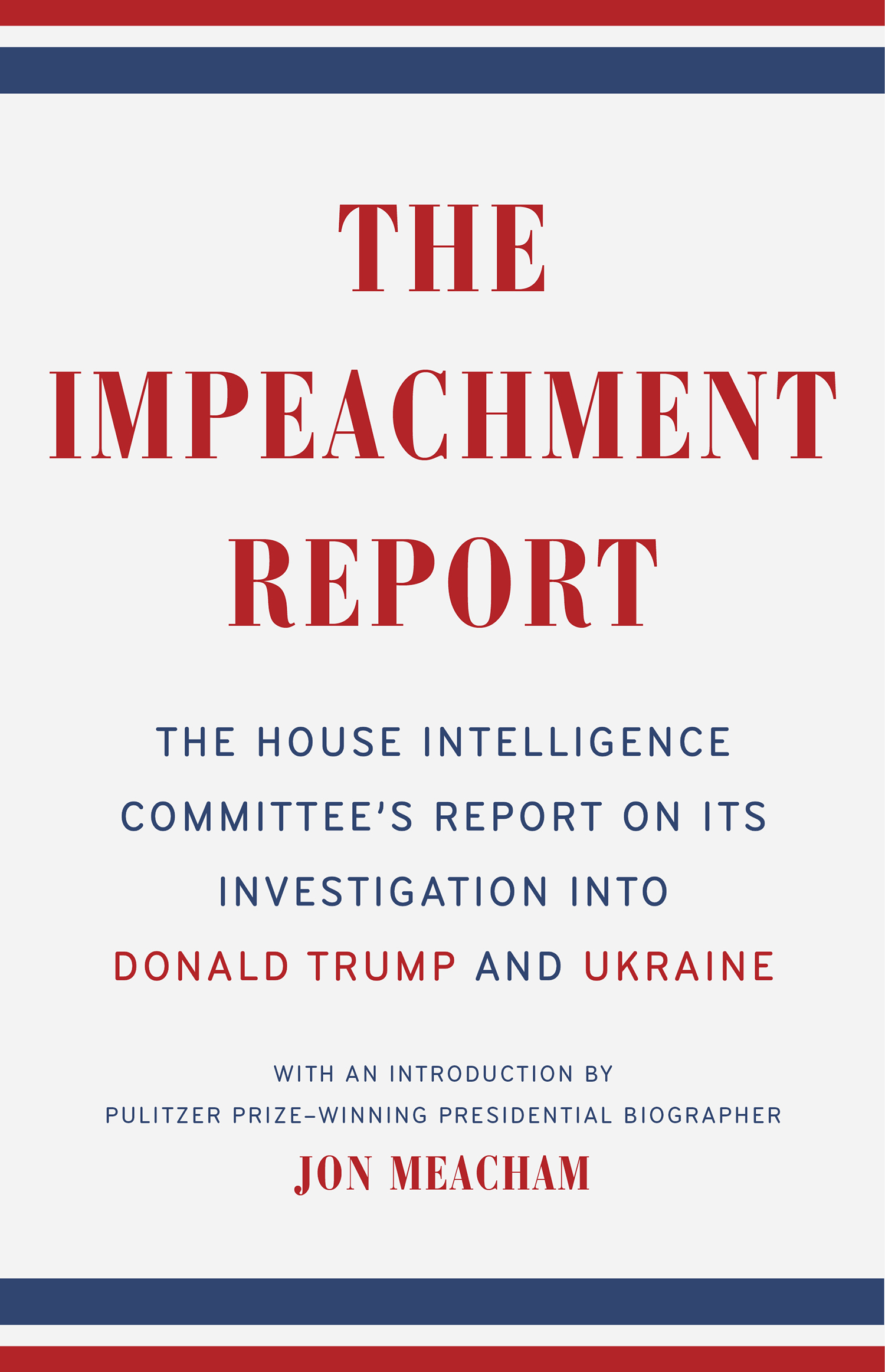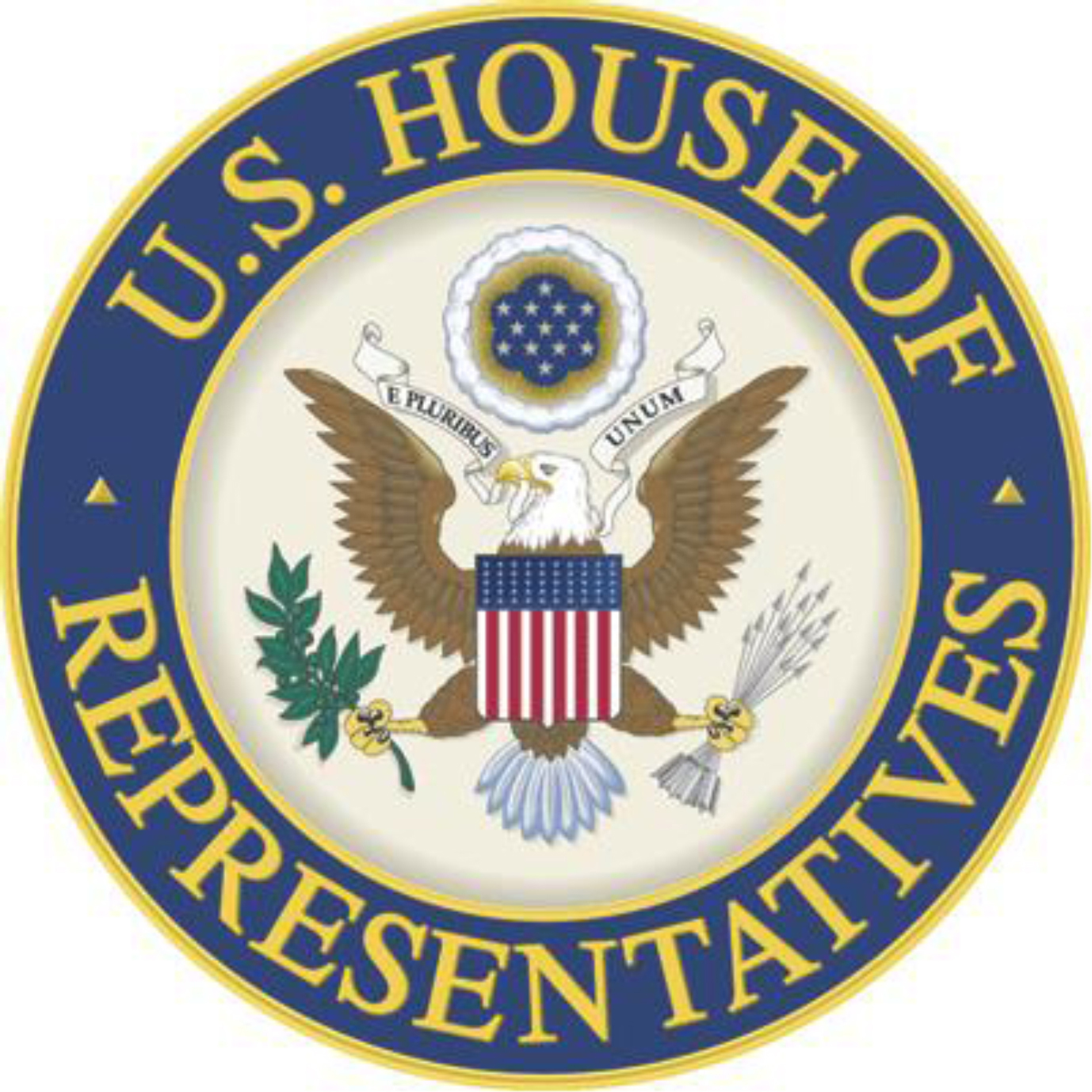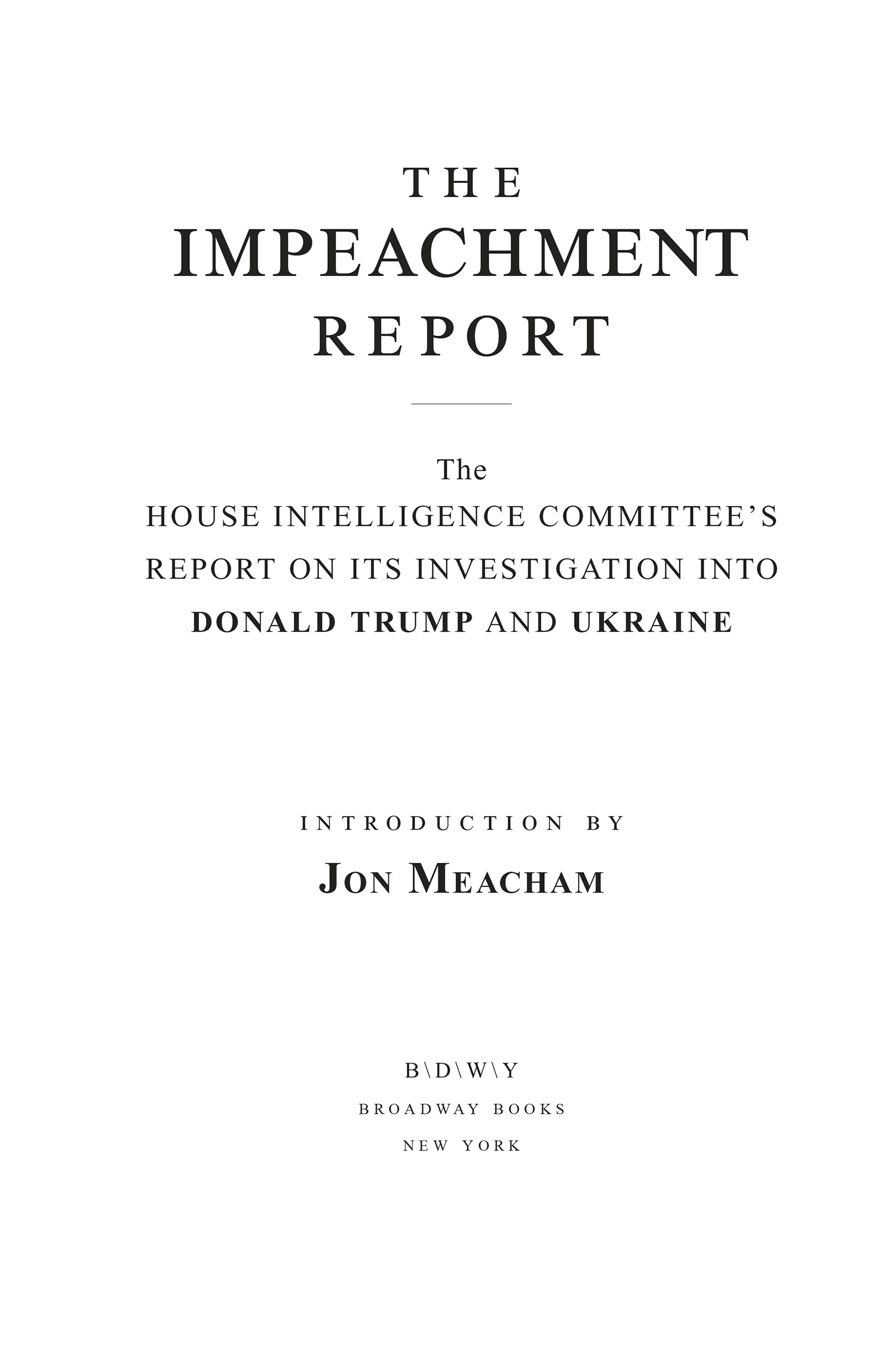Report of the House Permanent Select Committee on Intelligence, Pursuant to H. Res. 660 in Consultation with the House Committee on Oversight and Reform and the House Committee on Foreign Affairs
All rights reserved.
Published in the United States by Broadway Books, an imprint of Random House, a division of Penguin Random House LLC, New York.
B ROADWAY B OOKS and its logo, B\D\W\Y, are trademarks of Penguin Random House LLC.
INTRODUCTION
J ON M EACHAM
The weather was hot, the stakes high, the debates fraught. In the long Philadelphia summer of 1787, in the stuffy confines of the Pennsylvania State House (later known as Independence Hall), the members of the Constitutional Convention were framing a new government for the nascent United States of America. In conversations about executive power, James Madison of Virginia spoke of the presidency as a unique office that would ideally transcend sectional jealousies. In a speech on Saturday, July 21, Madison argued, The Executive Magistrate would be considered as a national officer, acting for and equally sympathizing with every part of the U. States.
From an executive to whom much was given, though, much would be expected, for Madison and his colleagues in Philadelphia shared a tempered, often pessimistic view of human nature. If men were angels, Madison was to write in The Federalist, no government would be necessary.
And since men were decidedly unangelic, government would require divisions of sovereignty and detailed sanctions to keep things in balance. Hence an entire constitutional structure was created, one that has served the nation well for nearly two and a half centuries.
Impeachment and removal from office were the ultimate check on presidential power. Shall any man be above justice? George Mason asked at the convention. Above all, shall that man be above it who can commit the most extensive injustice?
For the Founders, the answer was no. As the report that follows shows, it is an issue that confronts us even now. The presidency of Donald Trump has challenged or upended innumerable American conventions; in this season, the country is facing a reckoning. Given the story told by the House Intelligence Committee in this document, do Americans believe that such conduct by a president is acceptable? That is the question that lies before the Congressand before the nation.
A bit more history. In 1776, in Common Sense, Thomas Paine used the term President to describe a chief magistrate. Scholars believe that Paine was the first to use this term for a head of an American government. Even then, more than a decade before the Constitutional Convention, reservations were expressed about investing too much power in a single man. But where, say some, is the king of America? Paine wrote. Ill tell you, friend, he reigns above, and doth not make havoc of mankind like the royal brute of Great Britain.[I]n America the law is king. Paine went on to write, For as in absolute governments the king is law, so in free countries the law ought to be king; and there ought to be no other.
The potential power of the presidency, for good or for ill, was always clear. His person, countenance, character, and actions, are made the daily contemplation and conversation of the whole people, John Adams wrote in 1790. To Alexander Hamilton, writing in The Federalist, Energy in the executive is a leading character in the definition of good government. It is essential tothe security of liberty against the enterprises and assaults of ambition, of faction, and of anarchy.
By 1810, after eight years in the office himself, Thomas Jefferson would write, In a government like ours it is the duty of the Chief-magistrate, in order to enable himself to do all the good which his station requires, to endeavor, by all honorable means, to unite in himself the confidence of the whole people. This alone, in any case where the energy of the nation is required, can produce a union of the powers of the whole, and point them in a single direction, as if all constituted but one body & one mind: and this alone can render a weaker nation unconquerable by a stronger one.
But how to create this union of the powers of the whole while maintaining a balance among the branches of government? It was this balance that Madison believed essential to safeguarding liberty from overreaching legislators or from grasping presidents, and it remains a perennial and consuming issue.
To Madison, foreign interference in elections was a threat from the beginning. It would be, he warned, an object of great moment with the great rival powers of Europeto have at the head of our government a man attached to their respective policies & interests. And what about once the president was in office? The power to impeach was crucial.
Mr. Madison thought it indispensable, he wrote in a third-person entry in his Constitutional Convention notes, that some provision should be made for defending the community against the incapacity, negligence, or perfidy of the chief magistrate. Madisons fears? A president might betray his trust to foreign powers.[L]oss of capacity or corruption waswithin the compass of probable events, and either of them might be fatal to the Republic. The convention settled on impeachment by the House with conviction in the Senatean instance of Madisonian checks and balances.
In our time we are living in a moment marked by demagoguery, reflexive partisanship, and a Hobbesian world of constant and total political warfare. We know all the factors: the return of the kind of partisan media that shaped us in the eighteenth and nineteenth centuries, relentless gerrymandering of election districts that has produced few swing congressional seats, and the allure of reality-TV programming that has blurred lines between entertainment and governance.
So what to do? We can begin by reading the following report. In so doing we will find ourselves at once oriented and informed. When the mariner has been tossed for many days in thick weather, and on an unknown sea, Daniel Webster said in 1830, he naturally avails himself of the first pause in the storm, the earliest glance of the sun, to take his latitude, and ascertain how far the elements have driven him from his true course. The fate of this presidency, of the ensuing future elections, and of our true course, lies in two sets of hands. The first is the House and the Senate. The second is the electorate that will determine the outcome of the 2020 campaign. People of good will can disagree about impeachment, but one hopes that we can at least agree on what happened even if some choose to excuse it or dismiss it.
Divisions of opinion are inherent elements in a democracy. There was never a once-upon-a-time in American life, and there will never be a happily-ever-after. The world doesnt work that way. Andrew Johnson survived impeachment; Richard Nixons support held until the very last moment of Watergate; Joe McCarthys anticommunist reign lasted not a season or a single cycle but four long yearsand even after hed fallen into disgrace, 34 percent of the country still supported him.

